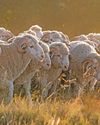Denemek ALTIN - Özgür
The Pros And Cons Of Subsurface Irrigation
Farmer's Weekly
|Farmer's Weekly 17 August 2018
The drought in the Western Cape has sparked renewed interest in research done almost two decades ago on partial root and subsurface irrigation. Pieter Fouché, the viticulturist at the Graham Beck Wine Estate, who participated in these studies, spoke to Glenneis Kriel about the farm’s experience with these irrigation methods and whether they’re worthwhile pursuing.

Graham Beck Wine Estate, situated in the Robertson Valley, is most probably one of the only farms in the country that still has vineyards under subsurface irrigation.
The farm has 130ha under various wine grape cultivars, of which 6ha, consisting of a French Chardonnay clone (CY277) on Selection Oppenheim 4 rootstock, uses subsurface irrigation.
Pieter Fouché, the viticulturist on the wine estate, had the idea to establish vineyards on subsurface irrigation during a tour to the Margaret River wine region of Australia in 2004.
“The Australian farmers claimed subsurface irrigation reduced their water usage by roughly 30%, but on our farm, savings were never more than 10% of the farm’s total annual average,” he says.
Fouché blames the wide differences in soil for the unimpressive results. “The Australian farms had deep alluvial soils, whereas ours are much more diverse, also making it trickier to manage.”
Dr Philip Myburgh of Agricultural Research Council Infruitec-Nietvoorbij came to the same conclusion in his trials with subsurface irrigation.
“From 1999 to 2004, we evaluated the efficiency of subsurface irrigation on alluvial soils at various depths on Thompson Seedless vineyards near Upington. Subsurface irrigation was not found to be better than surface irrigation, probably because water applied with subsurface irrigation still finds its way to the soil surface thanks to capillary action in the soil, from where the water evaporates,” Myburgh explains.
Fouché and Myburgh agree they would not recommend subsurface irrigation to other farmers if the goal was to save water.
“A 10% reduction in water usage might become more attractive in future, as water becomes scarcer and more expensive, but there are various other reasons why I would think twice before expanding the area under subsurface irrigation,” Fouché says.
Bu hikaye Farmer's Weekly dergisinin Farmer's Weekly 17 August 2018 baskısından alınmıştır.
Binlerce özenle seçilmiş premium hikayeye ve 9.000'den fazla dergi ve gazeteye erişmek için Magzter GOLD'a abone olun.
Zaten abone misiniz? Oturum aç
Farmer's Weekly'den DAHA FAZLA HİKAYE

Farmer's Weekly
How AFGRI uses technology to unlock farm finance from asset to market
As modern farming becomes more capital-intensive and digitally driven, AFGRI is reinventing agricultural finance by linking technology directly to lending decisions.
5 mins
January 16-23, 2026

Farmer's Weekly
Adele's Mohair: a living tapestry of craft, colour and rural heritage
Octavia Avesca Spandiel spoke to Adele Cutten, founder of Adele's Mohair, to explore how a small spinning experiment grew into a thriving rural craft enterprise rooted in South Africa's rich mohair heritage.
6 mins
January 16-23, 2026

Farmer's Weekly
How Merino farmers are battling predation, disease and rising costs
Whether you are a stud breeder or commercial Merino farmer, environmental, operational, and infrastructural challenges have an equal impact on a farming operation. The aim of any livestock farmer, whether stud or commercial, is to keep losses at a minimum, and although farmers are facing many challenges, they implement various strategies to ensure both the survival and financial security or profitability of farming operations.
9 mins
January 16-23, 2026

Farmer's Weekly
The future of SA wool: refined infrastructure and wool traceability
As the agriculture sector starts to adapt to the fast-paced development of technology, producers and processors need to decide what to implement and what to avoid. Henning Naudé spoke to Izak Klopper, manager of shearer training at the National Wool Growers' Association, about how shearing has changed, and what the industry can expect from new research and development from international markets.
5 mins
January 16-23, 2026
Farmer's Weekly
Cannabis and marketing in South Africa
The path from cultivation to commercial success remains complicated by regulatory ambiguity. Cultivators who master compliant marketing while delivering verifiable quality will build sustainable businesses, says Thomas Walker.
2 mins
January 16-23, 2026

Farmer's Weekly
Foot-and-mouth disease project targets waste reduction and regulatory reform
A groundbreaking research collaboration between Red Meat Industry Services, the University of Pretoria, and global animal health leader Zoetis is aiming to transform South Africa's approach to foot-and-mouth disease.
3 mins
January 16-23, 2026
Farmer's Weekly
What to expect in 2026
The world faces a complex interplay of economic, geopolitical, environmental, technological, and social pressures.
3 mins
January 16-23, 2026

Farmer's Weekly
How drones are revolutionising pest and disease detection in agriculture
Drones are reshaping modern crop protection by giving farmers a powerful new vantage point: the sky. With advanced sensors, high-resolution imaging, and artificial intelligence-driven analytics, these unmanned aerial vehicles can detect early signs of disease, water stress, and pest damage long before the human eye can. Jedrie Harmse spoke to agricultural drone specialist Monique Heydenrych.
7 mins
January 16-23, 2026
Farmer's Weekly
Generic advertising in perspective
Dr Koos Coetzee explains how industry organisations and the agriculture sector actually have the ability to prudently manage the negative perceptions surrounding generic advertising campaigns.
2 mins
January 16-23, 2026

Farmer's Weekly
The modern Merino: the benchmark breed
The Merino breed has transformed dramatically over the past seven decades-from the skin-folded wool specialists of the 1950s to today's plain-bodied, fertile, well-balanced sheep prized for their dual-purpose productivity. Yet, despite its versatility, myths persist. Willie van Heerden, manager at Merino South Africa, dispels some of these myths.
2 mins
January 16-23, 2026
Translate
Change font size
